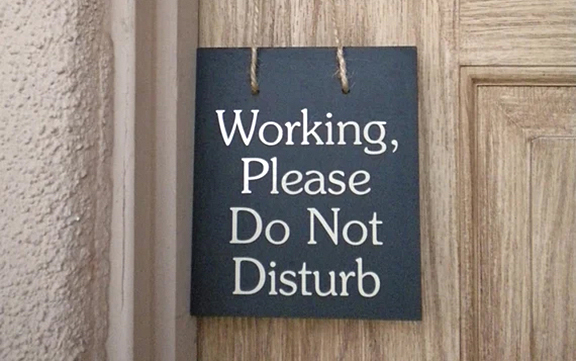Balancing Work And Life

We spend about a third of our lives at work. But for many people, work takes up much more time than that. It’s hard to separate our work time from our free time. But it’s important for your mental health to set boundaries between life and work.
Here are a few strategies to help your work-life balance.
1. List your priorities.
Work is a priority, but it’s important to know what your other priorities are. Do you want to spend more time with your family and friends? Or have some more time for yourself? Be clear with yourself about the things you want to make time for, from morning walks to dinner out with friends. Once you know what your priorities are, it’ll be easier to prioritize them.

2. Actually take your lunch break.
It’s easy to get caught up in your work and forget lunch. Or snacks. Or drinking water. If you get easily carried away, set reminders on your phone to take breaks. Breaks are an important way to reset your mind and prevent burnout.
3. Literally keep your work and home life separate.
More and more people are now working from home, making it even harder to separate your work with the rest of your life. Make sure your areas for work and play are not in the same place. Rule No. 1: Don’t put your office in your bedroom. Separating your spaces for working and relaxing will help keep work time from bleeding into your free time.
4. Turn on “do not disturb.”
You don’t need to be constantly available to answer emails or calls. So when you leave work (or the home office), take a break from work notifications. Then you can actually enjoy your free time without waiting for the next work call.
5. Don’t take on too much at work.
Being a “yes” person is prized in the work world, but it’s good for your mental health to say “no” sometimes. Your plate can only be so full – and that includes your work, your hobbies, and your “me” time. Being productive at work isn’t the most important thing; being productive in your self care is much better. (For some good DIY self care tips, read last month’s column.)
6. Work on your time management.
Better time management will make it easier to leave your work at work. Do your best to minimize distractions so you can get your work done more efficiently. A few tips to help manage your time at work:
– Do not disturb works at home and at work! Try not checking your phone at work.
– Make a planner to keep track of everything you need to get done.
– Set reminders when you have upcoming meetings or deadlines.
7. Schedule social time.
Just like adding breaks to your schedule, adding social time will encourage you to commit to it. And you’re less likely to overlook free time if you purposefully add it to your calendar. And it’s easier to take a break when you’re doing it with your friends or family.
8. Sleep.
Sleep is the answer for a lot of things, especially in mental health. If you’re able to, make night time a time for relaxing, not for work. And make sure you get enough sleep so you actually feel recharged going into work – or maybe a social activity – the next morning.
With all these strategies, you’ll be balancing work and life with your eyes closed.











